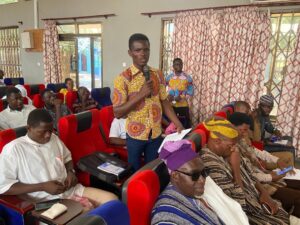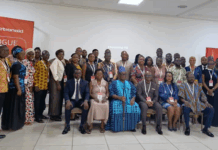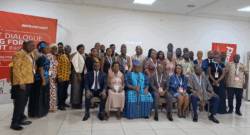Young people comprise about 38 percent of Ghana’s population, yet meaningful youth participation in peace–building processes and decision-making remains a challenge for many young people, especially those in rural areas with no formal educational backgrounds.
In a parliamentary session convened by the Youth Interreligious Parliament of African Students For Interfaith Tolerance, with support of the Kofi Annan Foundation and Greycells, young people of diverse religious, cultural and ethnic backgrounds voiced a resounding call for the establishment of a comprehensive roadmap on youth peace and security in the country.

Since the adoption of the UN Security Council Resolution 2250 in 2015, countries such as Finland and Nigeria have adopted National Action Plans (NAPs) as roadmaps to the localisation of youth, peace and security.
The session, held on February 17, 2024, brought together 65 diverse arrays of stakeholders, including students, public officials, local CSOs and Youth MPs, reflecting on the need to maintain peace ahead of Ghana’s 2024 elections.
The event commenced with an inspiring keynote address delivered by the Executive Secretary of the newly inaugurated North East Regional Peace Council, Mr. Haruna Ibrahim, who highlighted the pivotal role of young people in fostering interfaith and intercultural harmony in Ghana and urged young people to lead by being peace ambassadors.

Speaking to the media after the parliamentary session, a 2023 Kofi Annan Changemaker, Mr. Issah Toha Shamsoo, who doubles as the Executive Director of African Students For Interfaith Tolerance – a youth-led peace–building organisation in the North East Region, stated: “We have been engaging with youth and non-youth stakeholders on youth, peace and security in Ghana; so basically the Youth Parliament mentioned that there is the need for action from stakeholders on getting a clear plan for the domestication of the AU Continental Framework on Youth, Peace and Security and that of the UN Security Council Resolution 2250″.
The parliamentary session ended on a high note, with the presentation of a communiqué containing ten-point recommendations for the general public, media, youth groups, security agencies, UN bodies and CSO partners.










